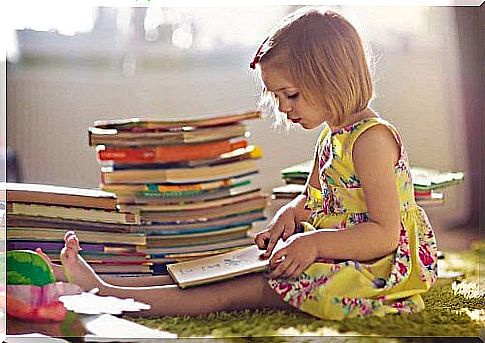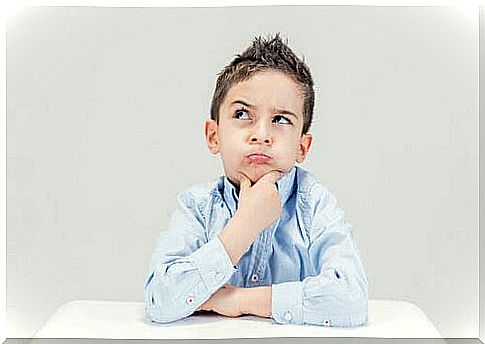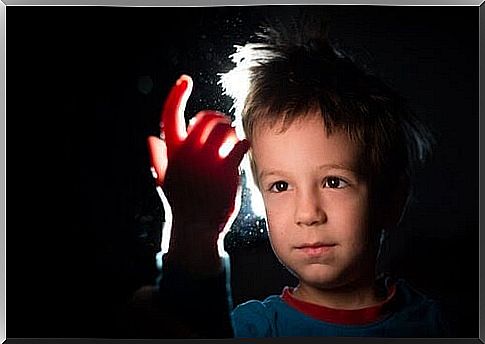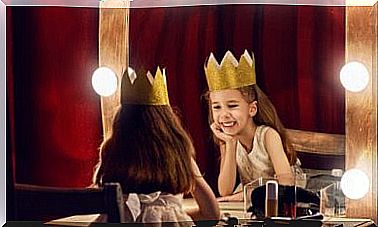The Benefits Of Philosophy For Children

Those who like to analyze the essential questions of human existence can spend hours talking about them. However, can we arouse a similar interest in philosophy in a child’s life? Let’s look at this in more detail.
Philosophy is a doctrine that seeks explanations for basic questions about human existence. The doctrine is based on reasoning and seeks to establish general principles of reality itself and the purpose of human life on earth.
It is a very abstract area and requires a lot of research and reflection, only to sometimes come to the conclusion that there is no answer. That’s why so many teens hate the subject!
But there is a way to arouse interest in philosophy in children. It opens the door to a world they otherwise would never have been able to imagine.
Philosophy for children: What is it?
Since young children still have not developed their abstract thinking (or at least not completely), we can not expect any deep or reflective reasoning from them. But there are many things that arouse their curiosity, and that is exactly what philosophy is really about.
In what ways are philosophy and curiosity similar? Simply because philosophers try to explain everything that happens around us, and in the same way curious children want to know what happens, why and what happens next. So the idea is basically the same.
Here are some questions that interest children:
- Where does life originate?
- What is death, and where do you go when you die?
- Who is God?
- How can I know if an action is good or bad?
- What values are most important in life?

Benefits of philosophy for children
Philosophy can provide great benefits for children, to begin with on a cognitive level. It helps them develop their critical thinking that makes them better understand what is happening around them.
But it also helps them emotionally and strengthens their self-confidence as well as gives them satisfaction by finding out more about what is around them.
In summary, philosophy can enable children to:
- start using critical and analytical thinking.
- interpret human actions and thought processes.
- Compare good and bad deeds and choose the best ones.
- reflect on their own actions, to either stop doing them or improve them.
- understand the feelings of others.
- feel empathy and develop the ability to put themselves in other people’s situations.
- promote creativity and innovation and help them think for themselves.
How to implement philosophy for children?
The most important places to teach philosophy to children are at home and at school. There are many books and articles written by experts that aim to introduce children to the subject.
The goal here is to “plant” important methods and ideas, such as those mentioned earlier, in the children. This is done through books and stories where the main characters are also children. Once the children have read and analyzed the story, the hope is that they will think of the same problems as the characters in the books.
In addition, these books often come with manuals and instructions for teachers and parents so that they know what type of teaching and learning they should try to achieve. Of course, it depends on the content of the books.
Some topics can be: how younger siblings come to be, where grandparents go when they die, who God is and why it is important to be a good person and how to become one.
The best thing about this educational model is that it breaks with the usual mindset that teaches children that knowledge cannot be questioned. On the contrary, it encourages children to question everything they encounter.

The origins of philosophy for children
Philosophy for Children was a program created by the American psychologist Matthew Lipman in the 1960s. To train teachers who wanted to apply this method in their work, Lipman founded the IAPC, Institute for the Development of Philosophy for Children .
Lipman and his colleagues aimed to transform education into a global experience, one that is not just limited to the school environment. The purpose of education should not only be to convey information and lists to learn, but also to help children question and search for their own answers.
As we have seen in this article , philosophy can help children find a way of thinking that is different from what the current education system does. That is why it is such an innovative method that more and more educational institutions have begun to consider.









